EFFECTS OF EUROPEAN MONEY: Nearly 80% of public investments are made with money from the European Union. Bulgaria has absorbed 93% of EU funds
Almost 80% of the public investments are done with money from European Union. This is what the Deputy Prime Minister Tomislav Donchev stated during the conference “The first seven years in EU - assessment of the investment in long-term growth and the net effects of them in sectoral and regional level". The forum was organized by the Higher School of Insurance and Finance (VUZF) and the Institute for Strategy and Analysis (ISA).
The conference was held on 17th of November this year in VUZF. It was opened by prof. Grigorii Vazov, rector of VUZF and by Valeria Veleva, CEO of the Institute for Strategy and Analysis.
Part in the discussion, except the Deputy Prime Minister Tomislav Donchev, took also Vasil Velev, chairman of the Association of Industrial Capital in Bulgaria, prof. DSc Evdokia Pasheva, Chief Scientific Secretary of BAS, Prof. Dr. Mitko Georgiev, rector of the University of Chemical Technology and Metallurgy, Assoc. Prof. Evgeni Evgeniev, Deputy Rector of European projects and continuing education at VUZF, Andrey Novakov, MEP, member of the Regional Development Committee in the European Parliament, as well as representatives of business - Atanas Moskov from "INTECHNA" AD Georgi Milev from "Eleia" LTD.
From the statement of the Deputy Prime Minister Tomislav Donchev it became clear that Bulgaria builds increasingly significant experience in absorbing EU funds. There are 28 information centers in the country where any organization or individual can obtain information on the operational programs and the ways in which one can apply.
According to Deputy Prime Minister, there is a certain "mythology" about EU funds. For example, one such “mythology” is that we import more than we receive. Or that the real sector is so bad that our country lives only by EU funds. A third misconception is that the difference between imported and the received result in 5-6 billion euro in favor of Bulgaria. And also that European money is spent only on highways.
"While transport infrastructure is the most visible, it takes a little over 20% of all funding," clarified Donchev.
On the question the investment in which area leads to the best effect in the development of the state economy, he said that the best variant is to invest bit in one but in more area – environment, human capitalSMEs, innovation, science, improvement of administrative capacity and others.
The last myth for the European funds, according to the word of Tomislav Donchev, is that the European money reach only tight circle of interested individuals. The data shows that actually 11 778 projects are implemented and behind 3154 from them are staying different organizations and companies, he underlined. According to him, the effects of the implemented projects are diverse - jobs, security, convenience and speed of travel, and others. A significant fact is that so far are created 372 000 job places, which is impressive, he said.
At the end of 2015, real GDP is 10% higher than the one which would have been without the effect of EU funds. About 35% higher levels of investment in firms, increased are the salaries, the earnings, the lower is the unemployment. Currently, the share of funds for financial engineering is 10% and during the next programming period is expected to double and triple. Until now, Bulgaria has absorbed 93% of the EU funds and has the potential to increase this percentage, he concluded.
Participation in the first panel of the conference took Vasil Velev, chairman of the Association of Industrial Capital in Bulgaria. According to him, the most negative points of the previous program period were associated with extremely heavy reporting requirements which reduce the desire for applying. Another problem also encountered business is changing application rules, led to many mistakes that caused an avalanche of lawsuits. Among the problems is the inadequate planning of financial resources and the priority areas for intervention (from municipalities to private beneficiaries, for example), and unsatisfactory expert resources from the administration side.
Besides representatives of the state administration in the conference took part and researchers. Prof. Evdokia Pasheva, Chief Scientific Secretary of BAS, touched the topic of participation of BAS in European projects. Three research institutes are working on major projects, funded for research and technological development totaling 10 million euros. With Operational Program "Competitiveness" were approved for funding in total 10 projects of BAS institutes for over 21 million Bulgarian Lev, which represent 1/3 of all approved projects submitted in Bulgaria.
Prof. Dr. Mitko Georgiev, Rector of the University of Chemical Technology and Metallurgy, commented on the benefits of EU funds as a method for improving the quality of education in the universities of the country.
His argument was supported by Assoc. Prof. Evgeni Evgeniev who shared arguments on the importance of the smart specialization strategies as a tool for shaping public policies on innovation, education and science.
Photos from the event you can see HERE.


